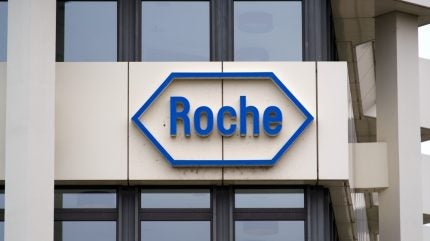Roche relaunches refillable wet AMDAMD implant two years after recall
09 Jul 2024
Drug Approval

Preview
Source: Pharmaceutical Technology
Roche’s Susvimo was first approved by the US Food and Drug Administration (FDA) to treat wet AMDAMD in 2021. Image Credit: Michael Derrer Fuchs / Shutterstock.
Two years following a voluntary recall, Roche has relaunched Susvimo (ranibizumab injection) for use as an ocular implant for the treatment of wet age-related macular degeneration (AMD)AMD).
The company has updated the components of the ocular implant and refill needle, whose inadequate performance resulted in septum dislodgement, which was the reason behind the recall. The 2022 recall was informed by a US study that showed that “some implants did not perform to Roche’s standards”, as per the company.
Susvimo consists of a customised formulation of ranibizumab, which is also co-marketed by Novartis and Roche as Lucentis. The eye implant is meant to be inserted in a one-time outpatient procedure. The device is refilled every six months using a specialised needle. Susvimo was first approved by the US Food and Drug Administration (FDA) in 2021.
Roche also plans to develop Susvimo for other eye disorders, including diabetic macular oedema.
See Also:BARDA and Tiba Biotech link to develop ‘flu therapeutics

Preview
Source: Pharmaceutical Technology
Merz wins $185m bid for bankrupt Acorda assets and increases US workforce by 50%

Preview
Source: Pharmaceutical Technology
GlobalData is the parent company of Pharmaceutical Technology.
Roche and Chugai Pharmaceutical’s Avastin (bevacizumab) is also used as an off-label therapy for wet AMDAMD. Outlook Therapeutics is currently working to develop a branded version ofbevacizumab. In August 2023, the US FDA rejected a biologic licence application (BLA) for the company’s bevacizumab-vikg candidate. The US agency noted several manufacturing issues and the need for additional confirmatory clinical data.
Another company developing an implant for wet AMDAMD is Ocular Therapeutics. In October 2023, the company launched a trial to evaluate the implant against Regeneron Pharmaceuticals and Bayer’s Eylea (aflibercept).
Other therapies in development for treating wet AMD include a gene therapy by China-based Skyline Therapeutics, a biodegradable insert containing a tyrosine kinase inhibitor by EyePoint Pharmaceuticals, and an anti-VEGF transgene therapy by 4D Molecular Therapeutics.
For more details,please visit the original website
The content of the article does not represent any opinions of Synapse and its affiliated companies. If there is any copyright infringement or error, please contact us, and we will deal with it within 24 hours.
Indications
Targets
Chat with Hiro
Hot reports
Get started for free today!
Accelerate Strategic R&D decision making with Synapse, PatSnap’s AI-powered Connected Innovation Intelligence Platform Built for Life Sciences Professionals.
Start your data trial now!
Synapse data is also accessible to external entities via APIs or data packages. Empower better decisions with the latest in pharmaceutical intelligence.





